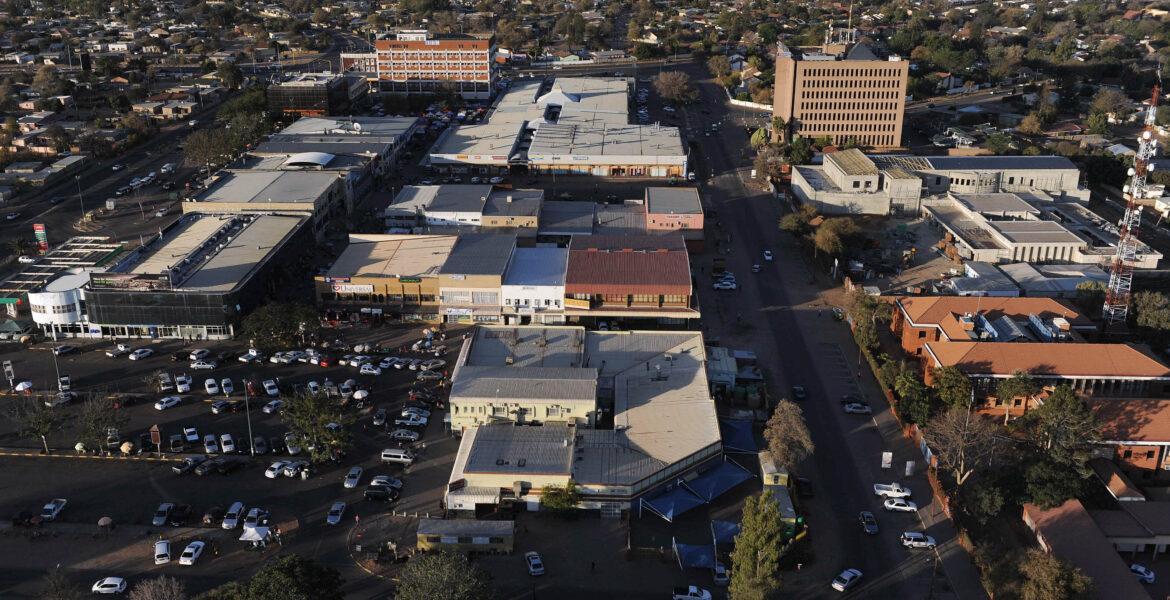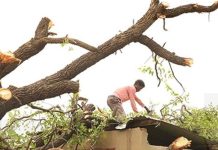Africa-Press – Botswana. Botswana would struggle to recover from a major economic shock, the World Economic Forum (WEF) report released this week has revealed.
The WEF evaluated among other things the extent to which an economy’s trajectory can withstand and bounce back from shocks. Botswana recorded a below average resilient growth score of 46.9 in comparison to the global average score and the middle-income country score of 52.8 and 50.0, respectively.
The report entitled “The Future of Growth 2024 is founded on the principles that simply striving to achieve Gross Domestic Product (GDP) growth is insufficient as growth must shift to a better balance between quantity and quality. Instead, it strongly recommends that each country must undertake a unique and complex journey towards achieving growth that is innovative, inclusive, sustainable, and resilient. The report offers a re-evaluation of global economic growth by introducing a new framework that takes a holistic look at GDP alongside the quality of growth across 107 economies. The framework assesses countries’ performance in four pillars namely (i) innovativeness, (ii) inclusiveness, (iii) sustainability and (iv) resilience. Each pillar is scored on a 0-100 scale, where 100 is an ideal and hypothetical case(score) in which a country achieves perfect performance on every component of the pillar.
The innovativeness pillar captures the extent to which an economy’s trajectory can absorb and evolve in response to new technological, social, institutional, and organizational developments in order to improve the long-term quality of growth. Botswana’s innovativeness pillar’s score is 44.0, which is slightly higher than the upper-middle income average of 43.3 but lower than the overall global average of 47.5. The country’s key strengths in this pillar are mobile network coverage scored at 91, ICT capital, which measures adoption of digital technologies in an economy, scored at 100 and human capital in the public sector, which measures the public sectors’ officials’ skills and competences, scored at 72. Exports of advanced services, patent application and trademark application recorded the lowest innovative scores for Botswana at 4.2, 0, and 32, respectively.
The report reveals that at higher levels of income, countries tend to specialize in technologically advanced sectors and value chains, thus improving their capacity for innovation even more.
The inclusiveness pillar assesses the extent to which an economy’s trajectory includes all stakeholders in the sharing of all benefits and opportunities created. Botswana’s overall inclusive score is 53.5, which falls behind the average global score and the average upper middle-income economies score of 55.9 and 54.8, respectively. Inclusion in the workforce, which measures equal access to employment opportunities across all social groups, equal opportunity in the public sector, which measures inclusion of all social groups in civil service and inclusion in leadership position have been identified as some of Botswana’s key strengths in the inclusiveness pillar. In these three components Botswana scored an impressive 82.2, 91.4 and 82.2, respectively. Unfortunately, wealth inequality, lack of social protection and limited access to banking and saving services are amongst the greatest inclusiveness weaknesses for Botswana, which were scored at 0, 14.7 and 9.2, respectively.
The sustainability pillar captures the extent to which an economy’s trajectory can keep its ecological footprint within the finite environmental boundaries. The average global sustainability pillar score is 47.7, highlighting a lack of sufficient progress on climate targets as most countries continue to grow in ways that are not sustainable. Botswana, on the other hand, exhibits a stronger sustainability-aligned growth in comparison to the rest of the world with a score of 53.3. The key strength for Botswana in this pillar are low agricultural environmental damage scored at 95.2, water use within the regeneration capacity, scored at 94.9 and biodiversity scored at 82.6. Green patents, environmental technology trade and renewable energy consumption are the country’s sustainability weaknesses scored at 0, 15.1 and 27.2 respectively.
The resilience pillar evaluates the extent to which an economy’s trajectory can withstand and bounce back from shocks. Botswana recorded a below average resilient growth score of 46.9 in comparison to the global average score and the middle-income country score of 52.8 and 50.0, respectively. Among Botswana’s strength in this pillar are old age dependency ratio and energy source diversification scored at 88.5 and 78.0, respectively. It should be noted that energy source diversification measures an economy’s capacity to adapt to energy shocks. The country also rated well on state legitimacy (75.0), which is a measure of people’s confidence in national institutions. Nevertheless, participation in mid-career training (4.8), healthcare capacity in case of a national health emergency (6.4) and food supply concentration (13.0) which measures exposure to food supply disruptions, are amongst the weaknesses for Botswana’s resilience pillar.
The report also shows that Botswana had a GDP growth rate and GDP per capita growth rate of 3.0% and 1.1%, respectively, between 2018 and 2023. Upper middle-income and global growth in GDP was recorded at 2.2% and 1.9%, respectively, over the same period. GDP per[1]capita growth, on the other hand, was 1.4% for the upper middle-income economies and 1.0% globally.
SUNDAYSTANDARD
For More News And Analysis About Botswana Follow Africa-Press






